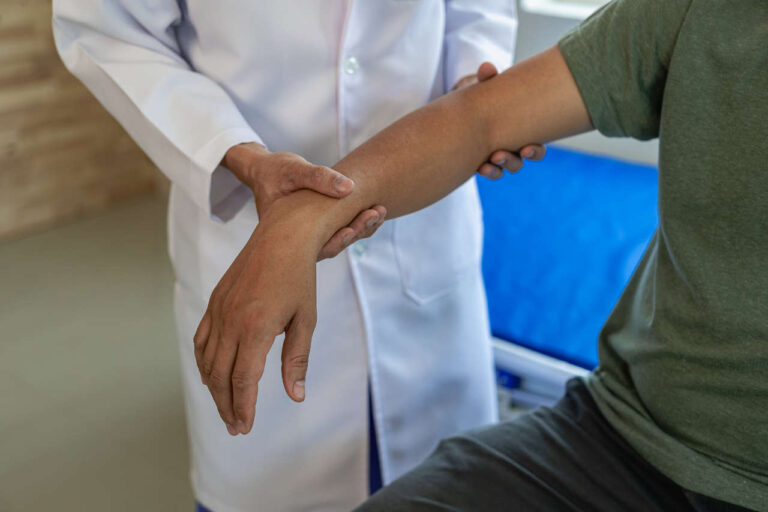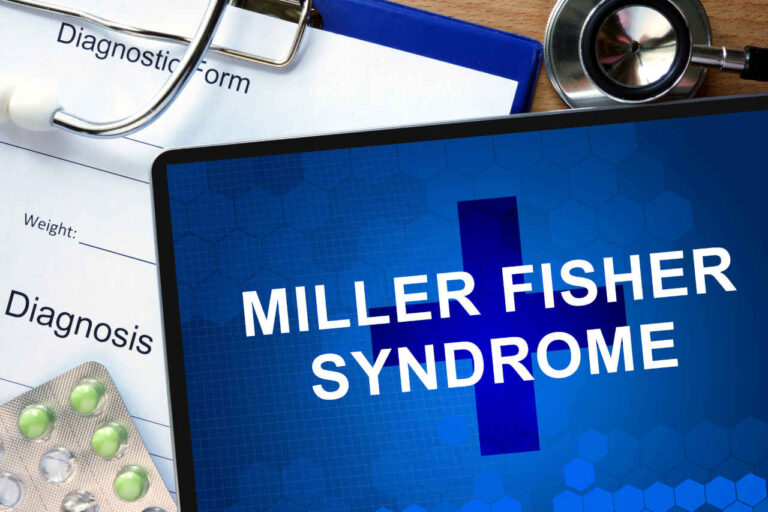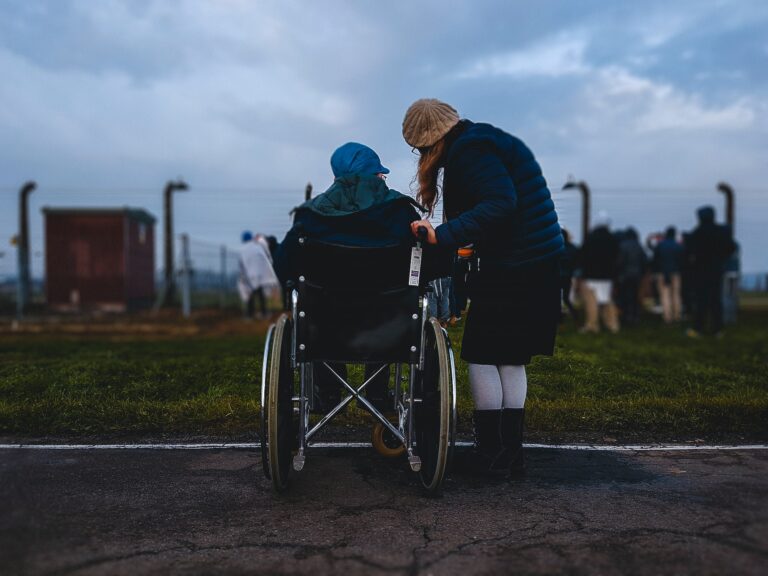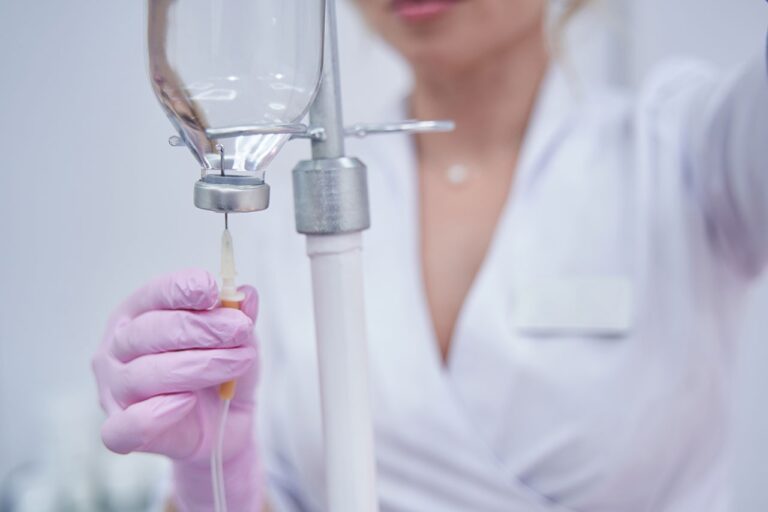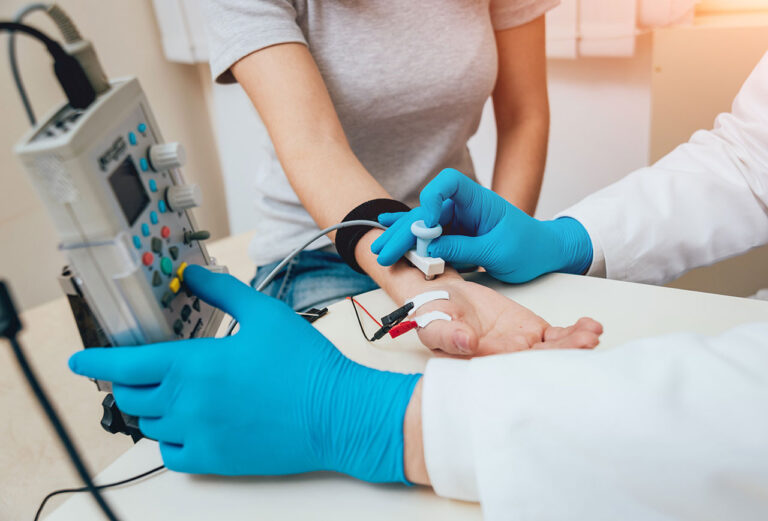
Vắc-xin bảo vệ chúng ta khỏi các bệnh truyền nhiễm bằng cách tăng cường hệ thống miễn dịch, nhưng chúng cũng có thể làm tăng nguy cơ mắc bệnh Hội chứng Guillain-Barre (GBS).
Nói chuyện với một chuyên gia về
Hỗ trợ đồng thanh toánGBS là một tình trạng thần kinh hiếm gặp nhưng có khả năng nghiêm trọng, gây yếu cơ, cảm giác ngứa ran ở tay và chân, hoặc thậm chí là liệt mềm cấp tính trong những trường hợp nghiêm trọng nhất. Sự khởi phát của GBS do tiêm chủng hoặc nhiễm trùng lần đầu tiên được báo cáo vào năm 1976, khi chương trình tiêm chủng cúm lợn bắt đầu tại Hoa Kỳ.
Vào thời điểm đó, khoảng 45 triệu người đã được tiêm vắc-xin và có báo cáo về GBS tăng lên ở những người đã được tiêm vắc-xin.
Trong bài viết này, chúng ta sẽ thảo luận về mối liên hệ giữa Hội chứng Guillain-Barre và vắc-xin, cách vắc-xin có thể kích hoạt sự khởi phát của GBS và loại vắc-xin nào đã được Cục Quản lý Thực phẩm và Dược phẩm (FDA) thêm vào danh sách cảnh báo.
Hiểu về hội chứng Guillain-Barre
Hội chứng Guillain-Barre (GBS) là một rối loạn thần kinh xảy ra khi hệ thống miễn dịch tấn công và gây tổn thương các dây thần kinh ngoại biên. Dây thần kinh giống như những sợi cáp truyền tín hiệu từ não đến cơ và ngược lại. Khi hệ thống miễn dịch làm tổn thương các dây thần kinh này, nó sẽ làm nhiễu loạn tín hiệu giao tiếp giữa não và cơ, dẫn đến tê hoặc cảm giác ngứa ran ở tay hoặc chân.

Theo thời gian, tình trạng này tiến triển thành tình trạng yếu cơ lan rộng hơn hoặc thậm chí là liệt. Theo thống kê Theo Trung tâm Kiểm soát và Phòng ngừa Dịch bệnh (CDC), có khoảng 3.000 đến 6.000 trường hợp mắc GBS được báo cáo hàng năm tại Hoa Kỳ và phổ biến hơn ở những người lớn trên 50 tuổi.
Sự phát triển của GBS chủ yếu xảy ra sau khi bị nhiễm trùng hoặc mắc bệnh.
Hội chứng Guillain-Barre và vắc-xin: Vắc-xin có gây ra GBS không?
Kể từ khi chính xác nguyên nhân gây ra GBS vẫn chưa rõ ràng, các nhà nghiên cứu tin rằng một số vi khuẩn (campylobacter jejuni) và nhiễm trùng do vi-rút (như cúm, HIV, cytomegalovirus, vi-rút Epstein-Barr và COVID-19) là nguyên nhân phổ biến gây ra rối loạn thần kinh này.
Trong một số trường hợp hiếm gặp, người ta cũng có thể gặp các triệu chứng của GBS vài tuần sau khi tiêm chủng. Các loại vắc-xin như vắc-xin cúm lợn và vắc-xin COVID-19 của Johnson & Johnson đã làm tăng nhẹ các trường hợp GBS ở những người đã tiêm các loại vắc-xin này.
Theo dữ liệu của CDC, có khoảng thêm một trường hợp mắc hội chứng Guillain-Barré cho mỗi 100.000 người được tiêm vắc-xin cúm lợn. Ngoài ra, 100 trường hợp GBS đã được báo cáo sau khi tiêm vắc-xin COVID của Johnson & Johnson, trong đó có 95 người phải nhập viện.
Mặc dù nguy cơ mắc GBS dường như rất nhỏ, nhưng vẫn có khả năng phát triển GBS sau khi tiêm chủng. Nghiên cứu về mối liên hệ giữa vắc-xin và khởi phát GBS vẫn đang được tiến hành.
Vắc-xin kích hoạt sự khởi phát của GBS như thế nào
Cơ chế mà vắc-xin kích hoạt sự khởi phát của GBS vẫn chưa được làm rõ. Tuy nhiên, có một số giả thuyết về cách vắc-xin có thể gây ra GBS:
Sự bắt chước phân tử
Một giả thuyết cho rằng một số thành phần trong vắc-xin có thể giống với các phân tử trong dây thần kinh. Khi người được tiêm vắc-xin, hệ miễn dịch sẽ sản sinh kháng thể chống lại thành phần lạ (thành phần vắc-xin). Các kháng thể này cũng có thể vô tình nhắm trúng đích và tấn công các tế bào thần kinh của cơ thể, dẫn đến tổn thương thần kinh.
Phản ứng miễn dịch kích thích quá mức
Trong những trường hợp cực kỳ hiếm gặp, phản ứng miễn dịch do vắc-xin gây ra có thể trở nên quá mức không thể kiểm soát. Hoạt động miễn dịch tăng lên này có thể vô tình nhắm vào các dây thần kinh và dẫn đến phản ứng viêm đặc trưng của GBS.
Khuynh hướng di truyền
Một số người có thể có cơ địa di truyền làm tăng nguy cơ mắc GBS sau khi tiêm chủng. Một số biến thể di truyền có thể ảnh hưởng đến cách hệ miễn dịch phản ứng với vắc-xin, và điều này có thể làm tăng nguy cơ mắc GBS ở những người dễ bị tổn thương.
Thông tin điều trị
Nhận được sự cho phép trước của IVIGNhững loại vắc-xin nào làm tăng nguy cơ mắc GBS?
Không phải tất cả vắc-xin đều kích hoạt sự phát triển của GBS. Tuy nhiên, một số vắc-xin được báo cáo trong các nghiên cứu hoặc báo cáo ca bệnh có thể làm tăng nguy cơ mắc bệnh. nguy cơ mắc GBS ở một số người.
- Vắc-xin cúm: Vắc-xin cúm lợn năm 1976 làm tăng nguy cơ mắc GBS thêm khoảng một ca trên 100.000 người tiêm. Ngoài ra, vắc-xin cúm H1N1 năm 2001 cũng có liên quan đến nguy cơ GBS, với khoảng một đến năm ca trên một triệu liều.
- Vắc-xin phòng bệnh zona: Vào năm 2021, FDA đã thêm nhãn cảnh báo vào vắc-xin Shingrix® vì nó làm tăng nguy cơ lên khoảng ba trường hợp trên một triệu liều vắc-xin.
- Vắc-xin đậu mùa: Vắc-xin này là nguyên nhân hiếm gặp gây ra GBS vì nó không được sử dụng thường xuyên.
- Vắc-xin phòng bệnh dại: Phiên bản vắc-xin dại ban đầu được sản xuất từ tế bào hệ thần kinh, làm tăng nguy cơ mắc GBS. Tuy nhiên, phiên bản hiện tại không chứa bất kỳ tế bào nào của hệ thần kinh và có thể được sử dụng mà không có nguy cơ mắc GBS.
- Vắc-xin dựa trên adenovirus COVID-19: Vắc-xin COVID-19 của J&J/Janssen cũng đã được FDA đưa vào danh sách cảnh báo sau khi nguy cơ mắc GBS tăng lên khoảng bảy hoặc tám trường hợp trên một triệu liều.
Các loại vắc-xin khác không liên quan đến khởi phát GBS bao gồm vắc-xin viêm gan A và B, sởi, quai bị, rubella, HPV và bại liệt.
Khi nào các triệu chứng của GBS xuất hiện sau khi tiêm vắc-xin?
Trong hầu hết các trường hợp, các triệu chứng của GBS có thể xuất hiện 6 tuần sau khi tiêm chủng. Do đó, bạn nên theo dõi chặt chẽ tình trạng sức khỏe sau khi tiêm chủng và nếu nhận thấy bất kỳ triệu chứng nào, hãy báo ngay cho bác sĩ chăm sóc sức khỏe.

